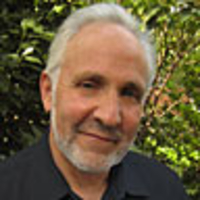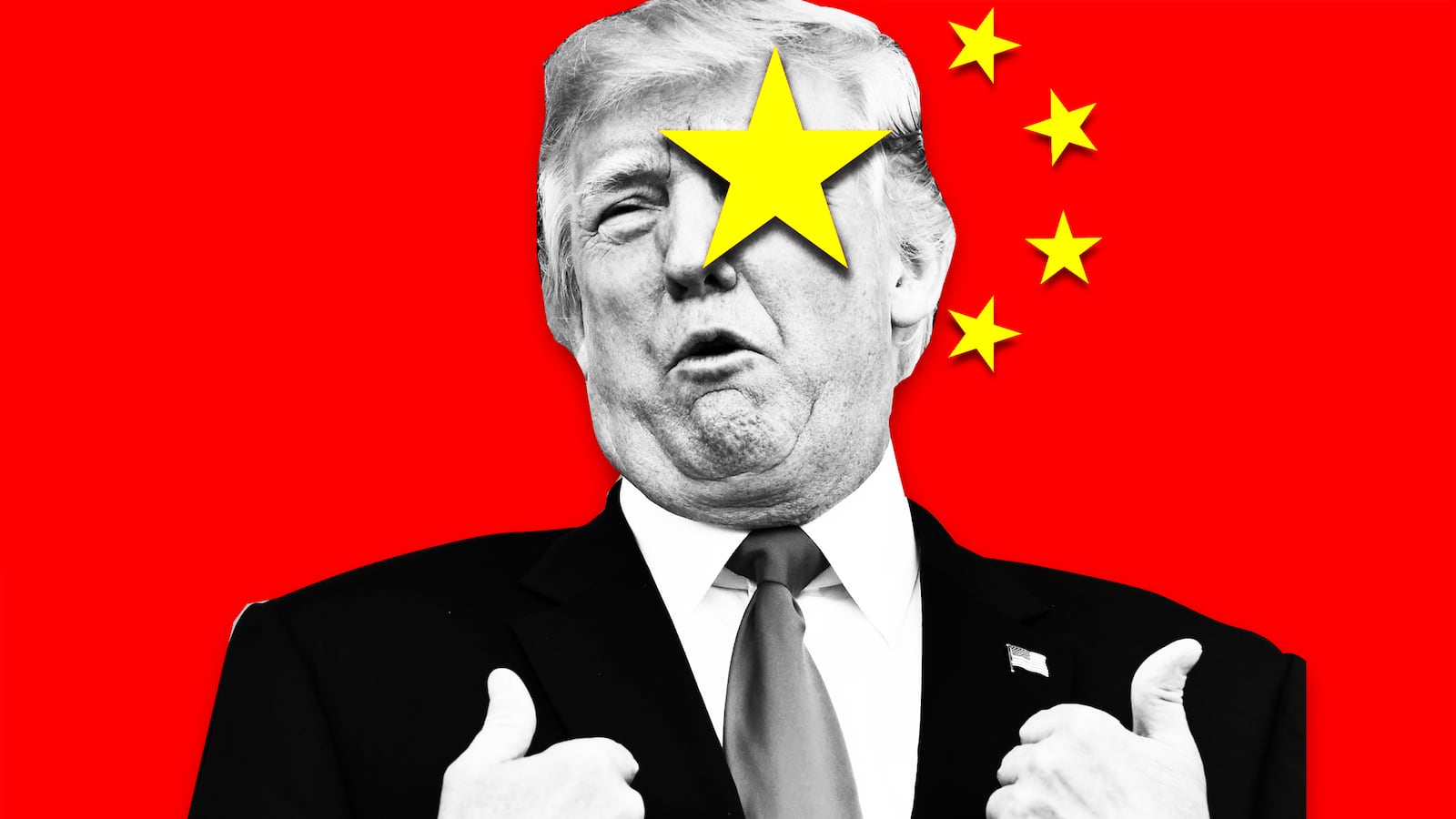If Donald Trump did not already exist, the leaders of the People’s Republic of China would have sought to invent him. There has never been an American president whose style, personality, and mindset were so perfectly suited to China’s preferred way of doing business. Chinese President Xi Jinping likes to talk of the “China Dream.” When it comes to American presidents, Trump is the China Dream.
Trump has a huge ego. The Chinese love big egos. Flattery is a skill Chinese officials have perfected over the millennia. They know how to entertain and to impress visiting leaders. They have done so to their considerable benefit with officials starting with Henry Kissinger. (“After a dinner of Peking duck, I’ll agree to anything,” Kissinger quipped during President Richard Nixon’s historic visit to China, a line somehow omitted from his own memoir but reported in an intelligence study of the trip years later.)
Trump disdains working through normal channels like the State Department. He prefers to operate through his own personal network—through family members like Jared Kushner and Ivanka Trump, his son in law and daughter, or through intermediaries like Kissinger, or members of the New York financial community.
Funny thing: China likes to do business that way, too. Nepotism? It has deep historical roots in China. Back-channel messaging? Beijing is good at it. When China wanted to send a letter to Trump a few months ago, it did so not through Secretary of State Rex Tillerson, but through Steven Wynn, the gambling magnate whose operations in Macao depend on the tolerance of China.
Trump doesn’t know much history or care about it. Perfect for China, which has been known to claim that history supports its position, whether concerning Taiwan, Tibet, the South China Sea, or whatever else that might be. Trump doesn’t like abstract rules; he sees the world in personalized, transactional terms. And so, too, does China.
All these dynamics serve as the backdrop to Trump’s first presidential trip to China, which will unfold next week. His visit will mark the first summit of a new era between the United States and China—and the circumstances of this trip could hardly be more favorable to China.
For the first time since the Nixon opening, China openly views itself as an emerging superpower on the order of the United States. For the first time, America has a president who sees himself not as the leader of the West or the “free world,” but merely of the United States, of America First.
Following the recent 19th Congress of the Chinese Communist Party, Trump will be doing business with a leader who has consolidated his own personal power to a greater extent than any of his predecessors since Mao Tsetung— and who is nevertheless, at 64, considerably younger and more vigorous than Mao was (78) at the time Nixon met him.
Trump will be looking for certain things in Beijing, such as help with North Korea and on trade and economic issues. He may even hope to obtain the release of a Chinese dissident, Liu Xia, the wife of Nobel Peace Prize winner Liu Xiaobo.
Meanwhile, China will have its own goals. They are, in fact, some of the same sorts of concessions China almost always seeks with American presidents – agreements, statements, or even the use of brief phrases that suggest greater American recognition of, or deference to, China’s role in Taiwan, or Tibet, or the South China Sea.
Both the press corps and Trump himself will be looking for results— something that can be toted up on a scorecard immediately after the summit, to show what Trump got or didn’t get. But the long history of U.S.-China relations shows that it will take a long time to see what really happens on the trip and afterwards.
Trump and his aides were pleased after his first meeting with Xi at Mar-A-Lago last April that they had obtained China’s agreement to a “100-day plan” for talks on trade. But the hundred days came and went and the tangible results were meager.
On North Korea, even if China tells Trump it is willing to help the United States, the results may be ambiguous—more than nothing, but not quite conclusive. Trump might consider an anecdote told to me years ago by former U.S. Ambassador James Lilley, who had been a leading CIA official dealing with China at the time of the Nixon opening.
Nixon and Kissinger tried to get China to slow up the rail shipments that carried supplies through southern China to North Vietnam. China suggested it might help. In the 1990s, two decades after the end of the Vietnam War, Lilley said with a laugh, “It’s 20 years later, and there are still intelligence debates about whether China helped or whether it didn’t.”
The reason Lilley told this story was that by the 1990s, the Clinton administration was beginning to ask China to help put pressure on North Korea to end its nuclear program. These days, the Trump administration is still asking—looking above all for China to cut back on oil deliveries to North Korea. And it is possible the United States will get the same result it did years ago: China might say it will help, but it will take a long time to see how much it does.
History shows that when American leaders visit China, they tend to exaggerate their accomplishments, but also to obscure or completely hide whatever concessions they have made.
This pattern dates back to the very origins of the Nixon opening. when Kissinger made his secret visit to Beijing in 1971. In his own memoir, Kissinger said Taiwan was mentioned “only briefly” during his initial meeting with Zhou Enlai. Decades later, the memos of that meeting showed that it was discussed at length, with Kissinger making key concessions about Taiwan’s status. He pledged that the United States would not support two separate Chinas, or an independent Taiwan.
“On that very first day, in his opening statement to Zhou, Kissinger gave Beijing more than it could have expected,” concluded a leading historian of U.S.-China relations, the late Nancy Bernkopf Tucker.
What might China seek from Trump? There have been occasional reports since Trump’s election that China wanted his administration to sign some new communiqué—one that would be a follow-up to the three communiqués about Taiwan that the United States agreed to during the 1970s and early 1980s. Any such communiqué could well amount to a huge new U.S. concession concerning Taiwan.
In recent years, China has also been pressing the United States regularly to recognize what China calls its “core interests” in places like Tibet, Taiwan, and the South China Sea. And so, on this trip, China could well try to get Trump to agree to some new language about “core interests,” in exchange for promises of action on trade or on North Korea.
The underlying reality confronting Trump or any other American leader is that the United States has less leverage in dealing with China than it had 20 years ago. That is the long-range trend. The way to grasp it is to look at the long-range pattern of American presidents visiting China.
After the Tiananmen Square massacre of 1989, American presidents refrained from visiting China for nearly a decade.. President George H.W. Bush, despite his personal affection for China, did not set foot there for the remainder of his presidency. Nor did Bill Clinton during his first term.
China was eager to have an American president come as a symbol of legitimacy, that it had come back from the isolation it suffered during Tiananmen era. And so, to help induce Clinton to come, China agreed to give him considerable scope for interaction: On his visit in 1998, Clinton was allowed to meet directly with China students at Beijing University, for example, and to talk to the Chinese people on television.
A decade later, when President Barack Obama went to China in 2009, he sought permission to do what Clinton had done. But by then, the Chinese regime was far more restrictive: Obama wasn’t allowed to talk with students on a college campus and wasn’t allowed to meet with Chinese lawyers. When Obama delivered a speech in China, it was broadcast only on local TV, not to a nationwide Chinese audience.
Now, Trump will visit a China under far tighter control than the one Obama visited nine years ago. He will be given banquets and probably some business deals, whose significance he is likely to exaggerate. His movements and his utterances will probably be carefully controlled, both by his Chinese hosts and by his own aides, with both sides eager to avoid some unexpected flap.
If Trump goes off script at all, it will almost certainly be in some remarks about events or people back home in the United States. When it comes to China itself, you can bet that, on this particular trip, even Trump’s tweets will be polite.





